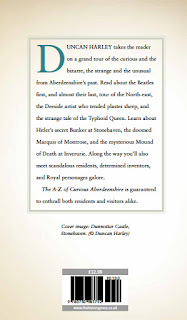Fluff and Google make for a bright Boy
Well, that’s the so-called author questionnaire filled out
ahead of the proposed next book. I can’t tell you what it is about just yet since
I’d have to kill you if I let the proverbial cat out of the bag, but it should
be a cracker. Well, I would say that wouldn’t I.
What is the author questionnaire I hear you ask. Well, it’s a sort of collection of proposals intended to draw out ideas for both the substance of the tome and reassure the publisher that the author has at least a semblance of sanity and some idea of what they are proposing to write.
I recall early days promoting a few web sites on Google. The rules were a bit draconian and unless you actually paid the internet giant some readies – in which case they generally left you to simply get on with it – website marketeers were in constant danger of breaking unknown rules leading to outright bans or in most cases demotion from the safety of the early algorithms. In short, break the Google-law and absolutely no-one, even the CIA would ever find your site ever again. Consigned to the pit-of-doom, many businesses became non-businesses virtually overnight and would never see the light of digital day ever again.
Where did I learn this? Well, from a nice guy employed by Business Gateway. In some forgotten year or other – actually it was 1998 – I attended his Internet Marketing Course in Huntly. It was a good move since not only did I pick up an invaluable skillset including a basic knowledge of HTML, which I have now all but forgotten, but he pointed out to my horror that a porn-site was piggybacking one of my client’s sites. I had secured the UK domain but of course had failed to purchase the dot.com.
His basic message was to be completely honest in what you tell people and in consequence to reflect this in the HTML tags for the site. ‘There’s no point in selling dodgy second-hand lawnmowers and using promotional tags including the terms space-rocket, NASA or M & S. Someone is sure to find you out eventually and its more than likely to be Google and then you’ll suffer rank-demotion to the bottom of the pile. It’ll take months to climb back up in the rankings, so just don’t do it!’
Wise words indeed. But it’s different with books. Yes, the content has to be above board, accurate and honest. But the cover fluff? It’s the cover which draws the readers interest and ultimately sells the tome on the day. That wee piece of hyperbolic text on the back cover is a make or break sales wise.
Suffice it to say that alongside filling in the boring details about myself in the questionnaire, I have spent over half of today agonising over that 150-word piece of cover rhetoric.
It’s after six now but all that remains to be done is to add in a tad more hyperbole. Now that shouldn’t take long should it …
Oh and that image above - that's one I made earlier.
What is the author questionnaire I hear you ask. Well, it’s a sort of collection of proposals intended to draw out ideas for both the substance of the tome and reassure the publisher that the author has at least a semblance of sanity and some idea of what they are proposing to write.
I recall early days promoting a few web sites on Google. The rules were a bit draconian and unless you actually paid the internet giant some readies – in which case they generally left you to simply get on with it – website marketeers were in constant danger of breaking unknown rules leading to outright bans or in most cases demotion from the safety of the early algorithms. In short, break the Google-law and absolutely no-one, even the CIA would ever find your site ever again. Consigned to the pit-of-doom, many businesses became non-businesses virtually overnight and would never see the light of digital day ever again.
Where did I learn this? Well, from a nice guy employed by Business Gateway. In some forgotten year or other – actually it was 1998 – I attended his Internet Marketing Course in Huntly. It was a good move since not only did I pick up an invaluable skillset including a basic knowledge of HTML, which I have now all but forgotten, but he pointed out to my horror that a porn-site was piggybacking one of my client’s sites. I had secured the UK domain but of course had failed to purchase the dot.com.
His basic message was to be completely honest in what you tell people and in consequence to reflect this in the HTML tags for the site. ‘There’s no point in selling dodgy second-hand lawnmowers and using promotional tags including the terms space-rocket, NASA or M & S. Someone is sure to find you out eventually and its more than likely to be Google and then you’ll suffer rank-demotion to the bottom of the pile. It’ll take months to climb back up in the rankings, so just don’t do it!’
Wise words indeed. But it’s different with books. Yes, the content has to be above board, accurate and honest. But the cover fluff? It’s the cover which draws the readers interest and ultimately sells the tome on the day. That wee piece of hyperbolic text on the back cover is a make or break sales wise.
Suffice it to say that alongside filling in the boring details about myself in the questionnaire, I have spent over half of today agonising over that 150-word piece of cover rhetoric.
It’s after six now but all that remains to be done is to add in a tad more hyperbole. Now that shouldn’t take long should it …
Oh and that image above - that's one I made earlier.











Comments
Post a Comment